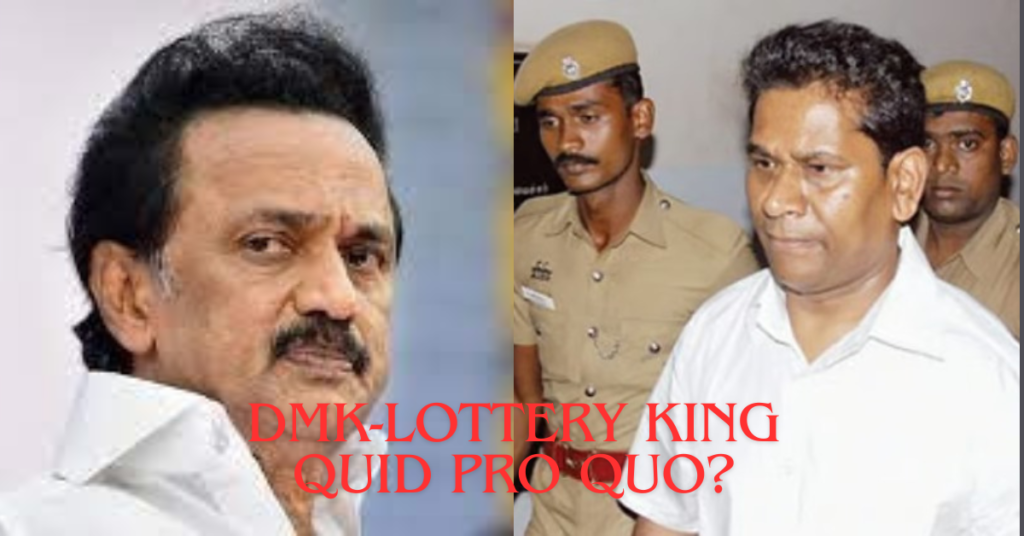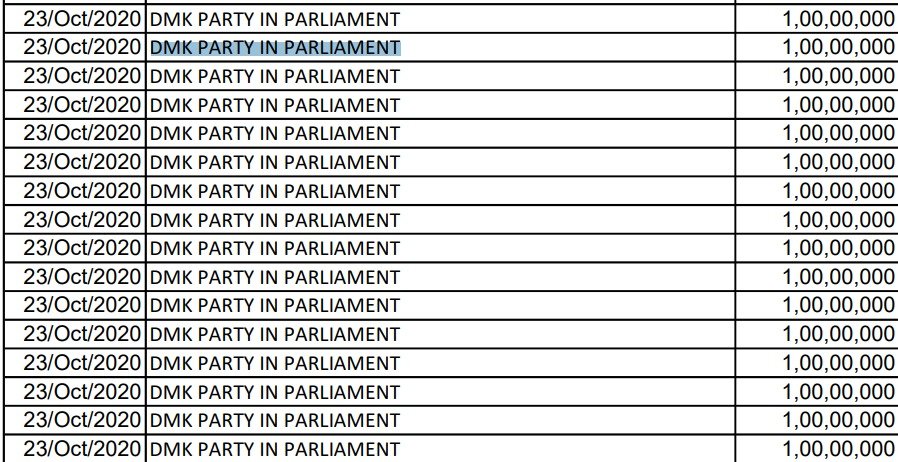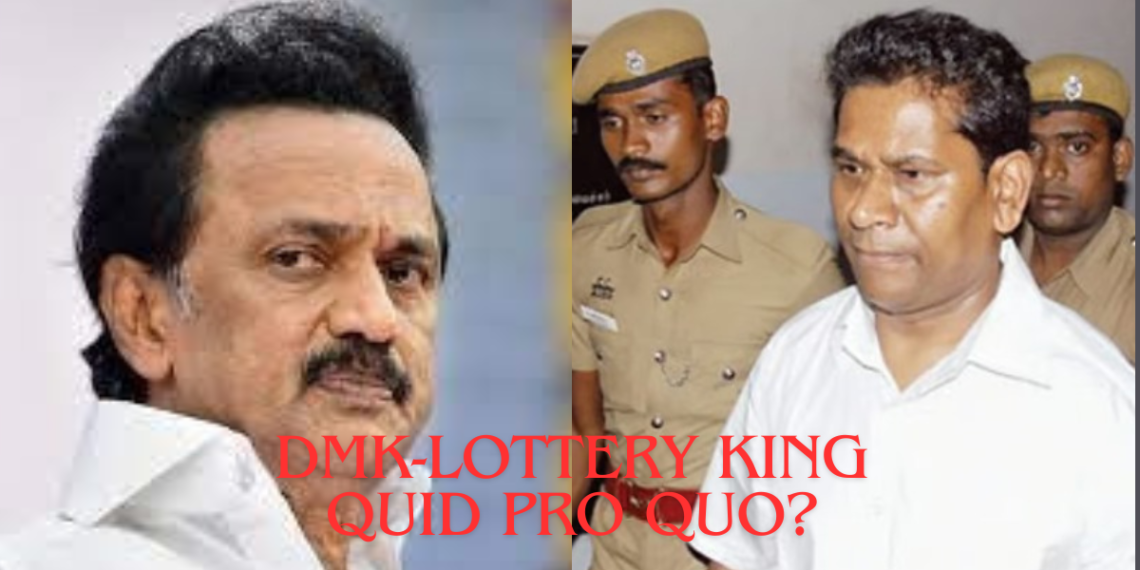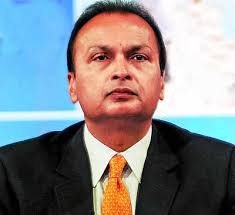The recent revelation by the Election Commission regarding data from the State Bank of India (SBI) on electoral bonds has sparked discussions on transparency and accountability in political funding. Among the key donors and recipients unveiled, Future Gaming and Hotel Services Pvt Ltd’s significant contribution has drawn attention and raised pertinent questions.

Led by Martin Santiago, also known as “Lottery King” Martin, Future Gaming emerged as a significant player with a staggering contribution of ₹13.68 billion in electoral bonds. Despite facing investigations for alleged money laundering, the Coimbatore-based company purchased 1,208 bonds worth ₹1,368 crore, making it the largest purchaser of electoral bonds.
Read More – Lottery King’s Future Gaming and Hotel Services Donated INR 1368 Crores in Electoral Bonds
Electoral Bond Contribution for Skill Gaming Ban: DMK’s quid pro quo with Lottery King?
Delving deeper into the details of Future Gaming and Hotel Services Pvt Ltd’s donations reveals a complex and potentially troubling picture. When examining the chronology of events, it becomes apparent that the ruling party in Tamil Nadu, the DMK, has banned online skill-gaming apps while allowing the lottery business, epitomized by Lottery King’s operations, to flourish. This raises questions about the relationship between electoral bond donations and political decisions.
Surprisingly, DMK appears as the potential primary beneficiary of Future Gaming’s donations, receiving 4.97% of the total electoral bonds value, amounting to over INR 600 crores. The total DMK electoral bond value is almost 47% of the total INR 1368 Crore value donated by Lottery King’s Future Gaming. So, is there more to this than what meets the eye?
This screenshot shows Future Gaming donating money through Electoral Bonds, dated 21 October 2020 –

Now, two days after Future Gaming and Hotel Services’ donations through Electoral bonds, data on ECI shows that DMK encashed their first tranche of donations through Electoral Bonds. Here is the screenshot attached –

The number of donations made on 21 October 2020 by Future Gaming and Hotel Services Pvt Ltd matches almost the number of donations encashed by DMK on 23 October 2020.
Check Here – Party Donations ECI data
Check Here – ECI Electoral Bond Donors List
DMK’s Banned Skill-Based Games But Allowed Lottery To Thrive
The legal landscape surrounding online gaming in Tamil Nadu has been tumultuous, marked by conflicting judgments and legislative actions. In August 2021, the High Court deemed the state government’s ban on online gaming as unconstitutional, citing violations of fundamental rights. Subsequently, the DMK government introduced an ordinance to reinstate the ban in 2022. However, in November 2023, the Madras High Court struck down the law again, specifically exempting skill-based games like online rummy and poker from its purview.
DMK’s role in this scenario adds another layer of intrigue. Despite the controversies surrounding Future Gaming and its owner, the DMK government’s decision to ban online skill-gaming apps while permitting the lottery business to operate raises suspicions of a quid pro quo arrangement. This juxtaposition begs the question: was the DMK’s favorable stance toward the lottery industry influenced by substantial electoral bond donations from entities like Future Gaming?
Past ED Raids on Lottery King’s Entities for Money Laundering
Martin Santiago’s legal entanglements add further complexity to the situation. The Enforcement Directorate (ED) has conducted multiple raids and investigations into alleged money laundering activities associated with Santiago and his company. In May 2023, assets worth about ₹457 crore were frozen under anti-money laundering laws as part of an investigation of alleged fraudulent lottery sales in Kerala. This scrutiny has overshadowed Future Gaming’s substantial electoral bond donation.
The revelations regarding Future Gaming’s electoral bond contributions and their potential influence on political decisions underscore the need for greater transparency and scrutiny in electoral financing. As stakeholders analyze these transactions, concerns about the integrity of the political process and the accountability of elected officials come to the forefront.
The situation also highlights broader issues surrounding governance and regulatory oversight. The potential nexus between electoral bond donations, political decisions, and regulatory frameworks raises concerns about the undue influence of money in politics and the need for robust mechanisms to ensure accountability and transparency.
Disclaimer: The information presented in this article is based on assumptions and hypotheses and awaits official and scientific data to establish direct links.














